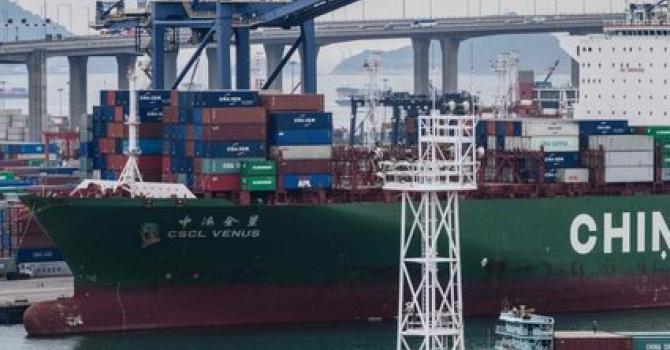SCMP: Xi Jinping knows China can’t be great without taking care of its environment
Christine Loh says the emphasis on environmental protection coming from both the president and the constitution is a natural continuation of the party’s agenda of modernisation and social uplift
China’s 19th party congress confirmed the importance of the environment in the nation’s dream of rejuvenation. President Xi Jinping raised specifics on environmental protection about 15 minutes into his 3½-hour political report on October 18, which shows the importance he places on it.
Some commentators assert that the report had little new and is long on rhetoric but short on substance. This is surprising: Xi offered both a report card and fulsome confirmation in every major policy area. Viewed in the context of the government’s many policy documents, such as on climate change, it is possible to see the full analysis, proposed solutions, action plans, timelines and targets.
Xi’s report needs to be seen in the context of the party’s overall goals in the past and future. Starting in the late 1970s, when China embarked on its modernisation path, the goal was poverty reduction, which is expected to be achieved for 800 million people by 2020 – an impressive “victory” by any measure.
Moreover, the party undertook in its 1982 constitution to make progress in economic, social, cultural and political rights. In 2012, it added the environment, a clear acknowledgement that much more is needed in order to clean up. The party even came up with a term – ecological civilisation – to emphasise that China’s development henceforth must include getting the environment right, too. Over the years, thought leaders within the nation’s policy institutions have assessed and reflected on China’s huge resource and environmental footprint in its fast-paced industrialisation to become “the world’s factory”. They concluded that China’s ecological capacities had been exceeded and that carrying on in the same way would be unsustainable.
This means the party knows China’s security in food, water, ecosystem functions, energy and climate have already been compromised. Policy advisers’ recommendations to leaders were to create and expedite the transition to a green economy and society.
This is what ecological civilisation is about. The amendment of the party’s constitution in 2012 signalled a much greater focus on ecosystem protection, pollution control and resource-use efficiency. Most importantly, the party has begun integrating these priorities into economic, social, cultural and political activities.
In May 2013, the leadership also put forward the idea to “beautify China”. Xi’s speeches repeated the need to rectify environmental degradation. The implementation of an ecological civilisation as political orthodoxy means the party is redefining and rebalancing development.
Xi's report also said that, by 2035, China would achieve substantial modernisation, including revamping environmental governance. We can expect Beijing to intensify reforms to meet this deadline, after which China will aim to become fully developed by 2049.
China cannot be “beautiful” with poor environmental conditions. Thus, efforts to fight pollution and revive ecosystems are fundamental to the party’s plans. This should come as very good news to both Hong Kong and Macau, which are situated at the southern tip of the country and direct beneficiaries of cleaner air and water.
Furthermore, China’s intent is to be a major global player on many fronts, including the environment. Xi’s report states that China has the ambition to become a world leader in development that is ecologically sound, including meeting its climate change commitments.
The younger policy and environmental leaders will have their place on the world stage as the environment plays a bigger role in China’s international relations and diplomacy.
Hong Kong and Macau, two special administrative regions with substantial policy autonomy, should take note of this major shift in policy to ensure ecological civilisation principles are integrated into the Greater Bay Area development plan.
Hong Kong has a role to play in the regional and national clean-up, with its expertise and experience in air quality management. It is time to recognise the challenge and step up.
This article is written by Christine Loh, chief development strategist, Institute for the Environment, HKUST and board member of CDP Worldwide, London; and also Jade Yung who is a freelance content and creative writer. She writes about innovation in multiple disciplines, including arts and culture, wellness and sustainability.
The article has appeared on SCMP: https://www.scmp.com/comment/insight-opinion/article/2117987/xi-jinping-knows-china-cant-be-great-without-taking-care-its




